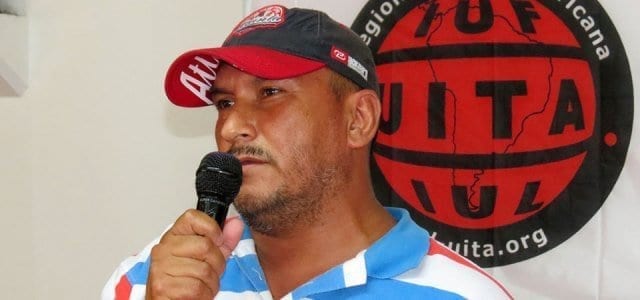
Jul 6, 2017
The president of a local branch of Colombia’s National Union of Agricultural Workers (SINTRAINAGRO) was fatally shot by gunmen on a motorcycle on July 1 while watching his son play soccer.
Alberto Román Acosta González led the Guacarí SINTRAINAGRO branch in Colombia’s Valle del Cauca. The Guacarí branch, along with other SINTRAINAGRO branches that represent sugar workers in the region, have been engaged in a 10-year, coordinated effort to formalize workers’ jobs and secure basic labor rights. According to Rhett Doumitt, Solidarity Center country program director, sugar workers and their unions have faced extreme violence in response to organizing efforts and their demands to end informal employment, which deprives workers of social protection and rights.
SINTRAINAGRO is an affiliate of the global food, farm and hotel union, IUF, which has written Colombian President Juan Manuel Santos to “demand a full and transparent investigation into this latest assassination and adequate measures to protect union leaders and members.” In 2013, Juan Carlos Pérez Muñoz, a union member in Colombia, was gunned down on his way to board a bus to the Cauca River Valley, where he worked in the sugarcane fields.
Last month, Colombia was listed as among the 10 worst countries for worker rights in the International Trade Union Confederation (ITUC) Global Rights Index. On June 21, a group of armed and masked men forcibly abducted and murdered Mauricio Fernando López Vélez, national vice president of the Union of Workers of Public Universities (SINTRAUNAL) and professor at Valle University, from his family’s farm in Buenos Aires, Cauca.
Up until the past few years, Colombia was the deadliest country for union leaders and members, with several thousand murdered over decades. The majority of those cases remain unsolved.
“Colombia remains one of the worst violators of trade union rights with a horrendous record for impunity regarding the murders of trade unionists,” according to the report. “Threats, violence and intimidation against trade unionists have a deep-rooted culture in Colombia and have continued apace in 2017.”
Sugarcane cutters work for up to 14 hours a day and make as little as $194 a month.
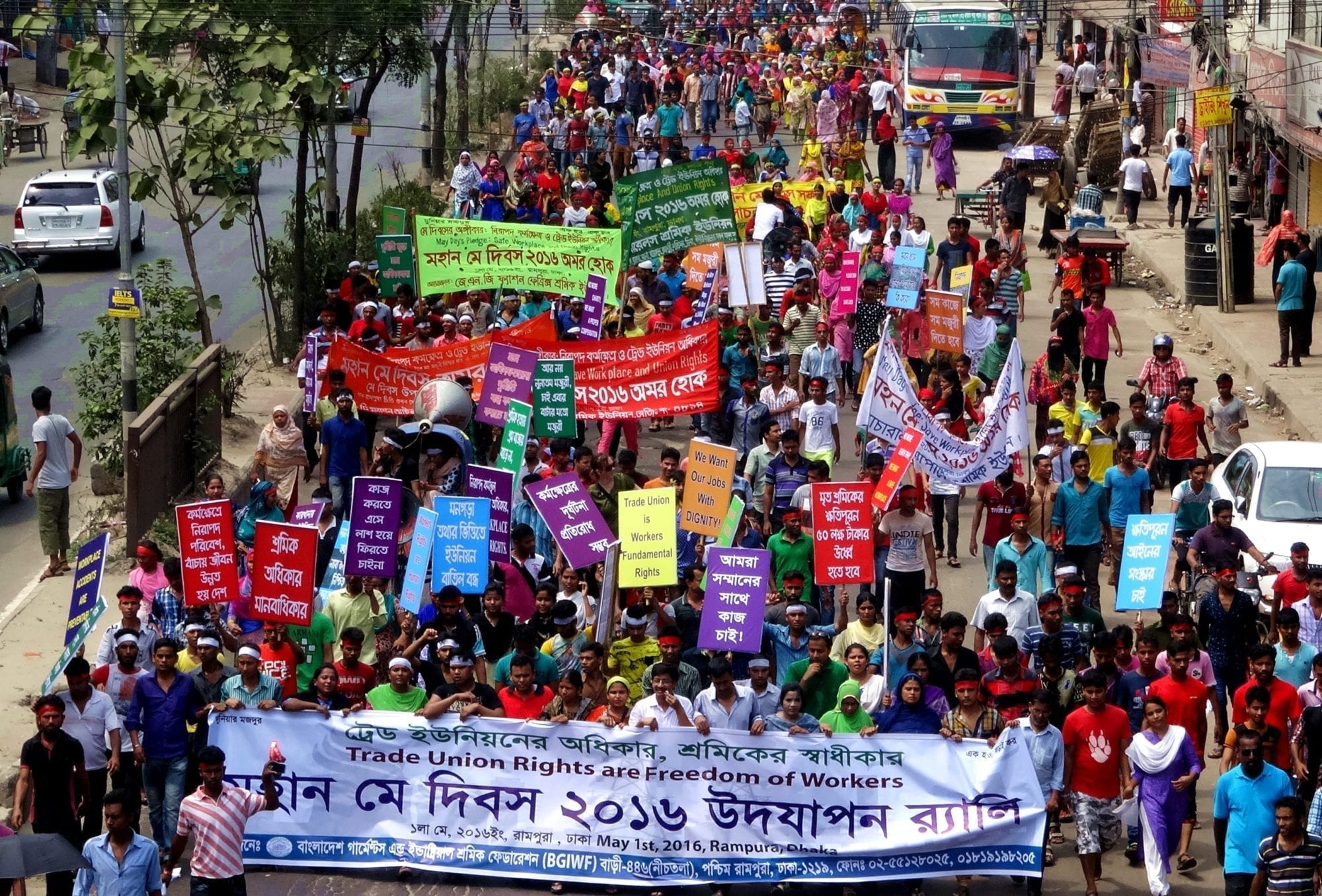
Jul 5, 2017
At least 13 workers were killed and dozens injured when a boiler exploded at a garment factory in Bangladesh on Monday, ripping through the six-story building and causing a portion of it to collapse.
Officials have now called off the search for survivors. The death toll was not higher because most of the factory’s 5,000 garment workers were on holiday and not in the building, officials say.
Harunur Rashid, a worker at the factory, says the boiler’s safety light was flashing danger, but the device’s operators assured them there was nothing to worry about, according to reports in the Bangladesh news media.
“Within 10 minutes after we returned to work, the boiler exploded,” he says. “It’s absolutely the authorities’ negligence.”
Witnesses report the blast ripped doors, windows, machinery and a section of the second floor wall, all of which went airborne.
The plant in the Gazipur industrial district is owned by manufacturer Multifabs.
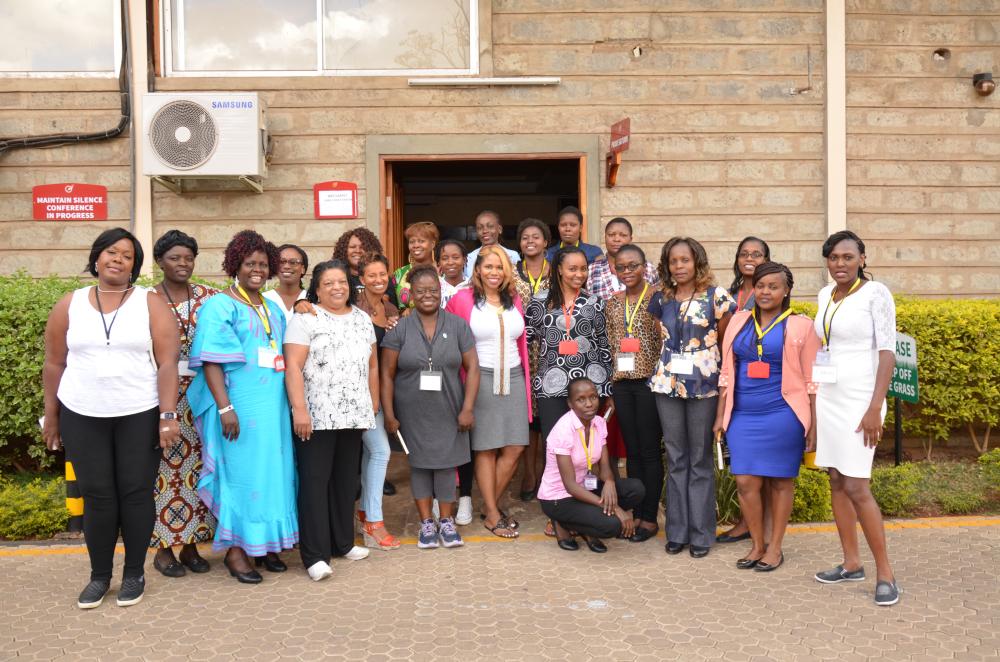
Jul 5, 2017
Five black women activists representing the U.S. labor movement, the Black Women’s Roundtable and other causes working to promote women’s empowerment and gender equality, traveled to Kenya last week to connect with union women from the Central Organization of Trade Unions-Kenya (COTU-K) and the broader community to examine structural barriers that disproportionately affect women and other marginalized groups, and explore remedies to those barriers.
The group visited with union leaders of COTU-K, Kenya’s labor federation, and with young worker activists in the informal economy, workers and organizers at a flower farm, managers and union representatives at a motor assembly plant of an international automotive corporation and community organizations and NGOs. Participants say the one-on-one connections reveal a labor movement that is responding to women’s demands for a seat at the table.
“The labor movement in Kenya has really embraced the idea around building power for women and building programs around empowering women,” says Salandra Benton, Florida AFL-CIO community organizing director.
Kenya Unions, Civil Society, Working to Promote Gender Equality
The women, who traveled to Nairobi, Naivasha and rural Samburu County, say they found a vibrant and effective civil society that is pursuing a progressive agenda promoting gender equality. They exchanged experiences and strategies with several nongovernmental organizations (NGOs) and community groups, including HAART, Women for Women, The Centre for Rights, Education and Awareness (CREAW) and the Kenya Youth Empowerment Network (KYEN).
U.S.-based community activist LaTosha Brown predicts that additional resources will bring even more progress. “When I saw the passion and commitment with the unions, women and young people, I also see … tremendous potential for significant impact for U.S. civil society groups and foundations,” she says. Brown is the project director at Grantmakers for Southern Progress.
Sheila Tyson, city councilperson in Birmingham, Ala., notes that women in Kenya have achieved significant political progress toward representative equity because the country has set aside legislative seats for women. “We don’t have that in the U.S.,” she adds. A legislative solution to low female representation in legislative bodies is important, she says, otherwise, women get little respect: “Men think we are mantelpieces.”
Kenya Activists Working to End Gender-based Violence
Gender-based violence at work and in society, a focus of the exchange, is beginning to be addressed in Kenya by trade unions and NGOS, as well as in the political realm through advocacy for legislative strategies.
“It was shocking to see how [gender-based violence] shows itself in very similar fashions around the world,” says Brown, adding that she was very encouraged to find COTU-K taking on domestic worker issues—which include sexual and physical violence on the job—as a key concern.
The women say they were heartened to see efforts to combat gender-based violence. Says Tyson: “People like Rose Omamo and the community activists are holding people’s feet to the fire.” Omamo, general secretary of the Amalgamated Union of Kenya Metal Workers and chair of COTU-K’s Women’s Committee, met with the U.S. delegation. She is the first woman to be elected general secretary of a trade union in that country.
Celeste Faison, organizing coordinator for the U.S. National Domestic Worker Alliance (NDWA), and Erica Strong, business owner, author and motivational speaker, also joined the delegation. The Solidarity Center implemented the exchange with a grant from the U.S. Department of State’s Bureau of Educational and Cultural Affairs.
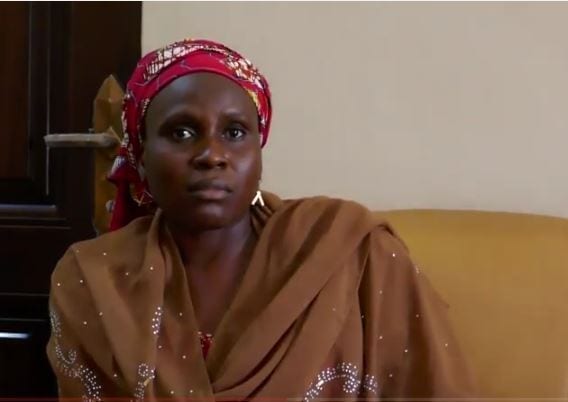
Jun 30, 2017
This week the Nigeria Labor Congress (NLC) and the Trade Union Congress of Nigeria (TUC)—which together represent millions of workers—along with civil-society organizations, presented a joint statement rejecting the “hate campaigns” that calling for secession in the northern part of the country. “We Are One for Nigeria,” they said.
Describing themselves as a pan-Nigeria force rejecting the drumbeats of war, the unions and civil society groups issuing the statement said that a physical conflict would, “hurt us all, most particularly workers” and that a divided Nigeria does not serve workers. The statement went on to call on all Nigerians of any faith, political bent, gender and ethnicity to, “stand up with one voice and fight those promoting division.”
The workers’ statement came in response to rising political tensions in the country, after a coalition of activist groups in northern Nigeria, known as the Northern Youth Groups, demanded that all members of the one of Nigeria’s main ethnic groups, the Igbo, leave northern Nigeria within three months or face forced expulsion. For some Nigerians, calls for secession are reminiscent of the bloody Nigerian civil war a half century ago, during which at least 1 million people died.
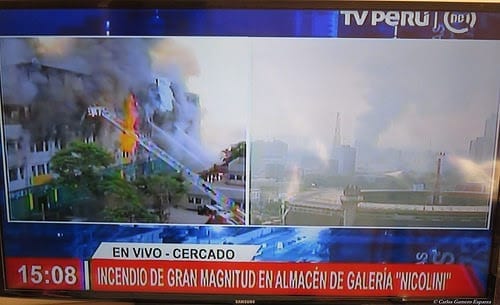
Jun 30, 2017
A deadly fire in a Peruvian warehouse has exposed forced and child labor and exploitive working conditions in the country’s vast informal economy. Four workers, one just 15 years old, who were locked into storage containers that doubled as work spaces are missing and presumed dead.
The blaze also injured at least 15 people, according to news reports. It took more than 500 firefighters five days to extinguish the flames.
On Thursday, June 22, the fire broke out in Nicolini Gallery, a building used for retail and manufacturing, located in the Las Malvinas area of Lima, Peru’s capital. Crammed with formal and informal businesses, the building included a fifth “floor” where metal shipping containers, ostensibly for storage, were used by JPEG SAC company as a workshop to produce counterfeit light bulbs. JPEG SAC employees included workers under 16 years old, who were not registered with the labor authorities.
The General Confederation of Peruvian Workers (CGTP) said that workers were killed ”not by mistake, happenstance, destiny or bad luck,” but rather they were victims of an “exploitive model that privileges profit by any means possible.”
Government officials called working conditions inhumane and slavelike.
“One of the victims called his mother to ask her to take care of his 21-day-old baby, knowing he would not make it out alive,” said Samantha Tate, Solidarity Center Peru country program director. “While it is not clear what started the fire, the building’s safety risks had been reported and it had been ordered closed. And it’s clear that these deaths were entirely preventable.”
The day before, more than 400 labor inspectors and assistant labor inspectors went out on a national strike to call for the strengthening of the National Superintendence of Labor Inspections, known as SUNAFIL. Among their strike demands, the labor inspectors called for an increase in the budget for the Labor Inspectorate to ensure proper protection of labor rights in the 14 regions where it currently operates and to open inspectorates in the 15 regions where there currently are none. Additionally, inspectors call for their employer to respect their collective bargaining agreement, and judicial decisions that would provide a bonus for inspections. The Solidarity Center works with SUNAFIL and the two labor inspectors’ unions to train workers about how labor inspections can help achieve stronger enforcement of worker rights.
The Ministry of Labor and Employment Promotion and SUNAFIL have come under scrutiny for their decision to halt a program to inspect small informal enterprises, like those found in Nicolini. On June 27, Minister of Labor Alfonso Grados testified before the congressional labor committee about the government’s role and responsibility in preventing tragedies like this one. The International Labor Organization’s office for the Andean region decried the use of forced labor in Peru, calling for all parties to abandon their indifference and join the fight to end all unacceptable forms of work in Peru and around the world.
“The labor inspectors and the young men and women working at JPEG SAC, while worlds apart in terms of education and life opportunities, are connected in the web of common humanity. When one group improves their conditions, they will be able to help the other group come out of darkness, out of danger and into the light,” said Tate. “Once we begin to recognize and act upon our connectedness, and make policies and budget decisions oriented by this respect for human life, then, and only then, will we know that there will be no more Nicolini tragedies.”
More than 200,000 workers toil in slavery-like conditions similar to the victims of the Nicolini fire, without labor rights or the information that would help them defend their rights. Seventy percent of Peruvian workers labor in the informal sector, most without contracts, social benefits, family-supporting wages or health and safety training and protection.





